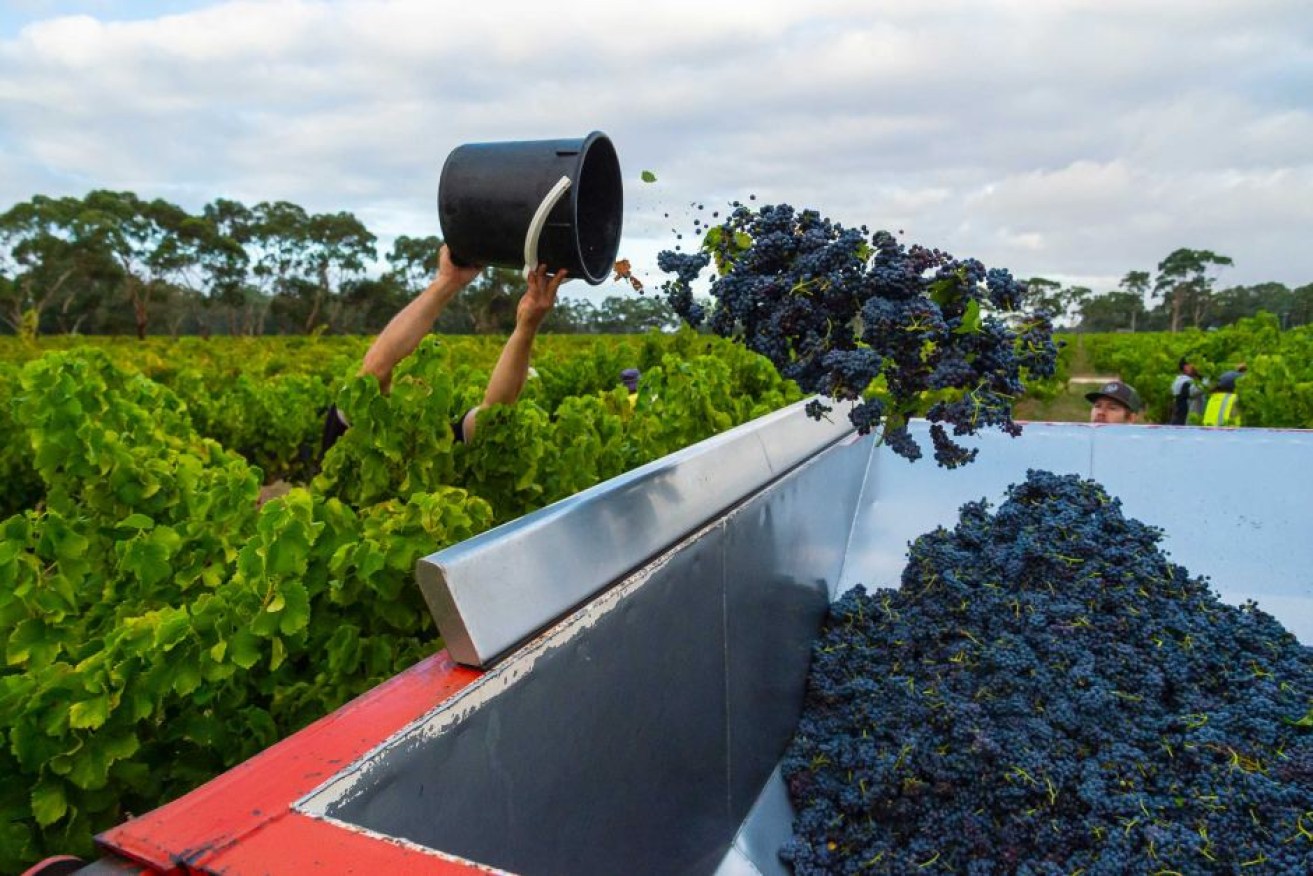Fears that a third of Australia’s wineries may go under during crisis
A third of Australian wineries could go to the wall in the aftermath of the coronavirus crisis, according to the industry’s peak national body.

Tony Battaglene says grape growers haven't been paid in full yet. (Supplied: John Kruger)
“We’ve got 2600 wineries at the moment and 30 per cent of that we could lose,” said Tony Battaglene, chief executive of Australian Grape and Wine.
“That’s anything up to 700 or 800 businesses, it’s that serious. I’m very worried.”
On March 30, following an outbreak of coronavirus among international tourists visiting the Barossa Valley, the South Australian government ordered the closure of all winery cellar doors that supply direct to the public.
Those state-based restrictions were relaxed this week to allow takeaway sales of alcohol and food.
Cellar doors miss chance to boost cash reserves ahead of winter
While there weren’t the same orders in all other states, the lack of tourism due to travel restrictions and the inability to serve sit-down customers has meant cellar doors everywhere have closed.
In South Australia’s McLaren Vale, Hugh Hamilton Wines was closed over Easter, traditionally a very busy time which financially sets up businesses for the winter.
“We are very much a wine business that focuses on selling wine directly to our customers and the cellar door is our lifeblood — that is where they first meet us,” said CEO Mary Hamilton.
“So you can imagine that has a really big impact on a business when you cut that off dead.”
Hamilton said her business sells wine through the large wine retailers but also directly markets to customers via an online store and wine clubs.
She said she is hopeful this experience helps the winery get through the current crisis.
“But I am feeling the pressure of having to become really good at it, really quickly,” she said.
Winemaking carries on
Production facilities that make wine but have no public interface have continued as they are considered an essential agricultural industry.
For Peter Leske, who makes wine for around 30 different clients at Revenir Winery at Lenswood in the Adelaide Hills, the fact he can continue production is a major relief.
“Fortunately, the whole virus thing has broken towards the end of the vintage,” Leske said.
“If it had happened six weeks ago when we were in the absolute hurly-burly of things, it would have been very difficult indeed,” he said.
Leske has stopped his clients from turning up without an appointment, staff are asked to maintain the 1.5-metre distance between each other and they sanitise hands and equipment regularly.
Sobering reality for small-scale producers
Battaglene believes the most vulnerable businesses will be small winemakers who rely on tourism and businesses selling to restaurants.
He said the Federal Government stimulus packages, despite being good for some industry sectors, would not help small winemakers.
“They’ve not got payroll tax, so a lot of these things that benefit other business just won’t impact on these people.”
He said smaller industry players often could not afford to keep employees on the books as they have to continue to pay superannuation and other entitlements at a time when they have no income stream.
“We’re also worried about grape growers,” Battaglene said.
“Grape growers may not have received their final payments for the year, so when winemakers are in trouble — if they go under — then the grape growers will also come under stress,” he said.
“So it goes right through the supply chain.”
Online sales already ‘overcrowded’
The other sector that has disappeared is the distribution channel: distributors who act on behalf of the wineries to sell wine to restaurants, cafes and hotels, all of which have closed.
“It could be the end of the distribution network as we know it in this country,” he said.
And he predicts when restrictions are finally lifted, the wine industry will look quite different from the current sector.
“I think there are going to be some dramatic changes that come out of this crisis,” he said.
“Obviously the growth of online and direct sales is a big one,” although he concedes that is already a very over-crowded space.
“It may well be people need to take things into their own hands, so we’re going to see a lot of producers who decide they need to control their route to market.”
– ABC / Prue Adams















